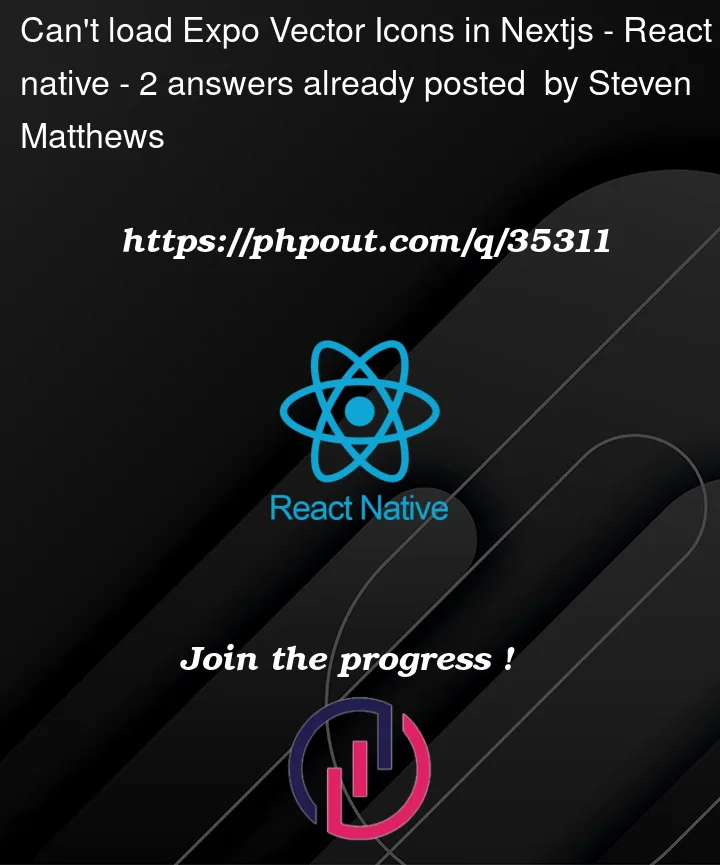I have tried a lot of different ways to do this, with absolutely zero luck, over multiple days.
I am trying to use Solito Nativebase Universal Typescript repo to do this:
I have read, and tried everything on this page at least a dozen times:
https://github.com/GeekyAnts/nativebase-templates/issues/43
My current next.config.js file looks like this:
/** @type {import('next').NextConfig} */
const { withNativebase } = require('@native-base/next-adapter')
const withImages = require('next-images')
const { withExpo } = require('@expo/next-adapter')
const withFonts = require('next-fonts')
module.exports = withNativebase({
dependencies: [
'@expo/next-adapter',
'next-images',
'react-native-vector-icons',
'react-native-vector-icons-for-web',
'solito',
'app',
],
plugins: [
[withFonts, { projectRoot: __dirname }],
withImages,
[withExpo, { projectRoot: __dirname }],
],
nextConfig: {
images: {
disableStaticImages: true,
},
projectRoot: __dirname,
reactStrictMode: true,
webpack5: true,
webpack: (config, options) => {
config.resolve.alias = {
...(config.resolve.alias || {}),
'react-native$': 'react-native-web',
'@expo/vector-icons': 'react-native-vector-icons',
}
config.resolve.extensions = [
'.web.js',
'.web.ts',
'.web.tsx',
...config.resolve.extensions,
]
return config
},
},
})
I have also tried using @native-base/icons, again, no luck.
My end use case is this:
export const Cart = (props: IIconStyles) => {
return (
<Icon
as={FontAwesome5}
name="shopping-cart"
size={props.size ? props.size : 6}
color="gray.200"
/>
)
Theoretically it SHOULD show a shopping cart, but instead, this is what I see:
So clearly there’s some font issue or other issue that is preventing it from loading in the actual SVG.
I can’t figure out what this is – I’ve tried rewriting my _document.tsx file like this:
https://docs.nativebase.io/nb-icons
I’ve tried adding this to my next.config.js:
config.module.rules.push({
test: /.ttf$/,
loader: "url-loader", // or directly file-loader
include: path.resolve(__dirname, "node_modules/@native-base/icons"),
});
When I try to do something like this:
import fontsCSS from '@native-base/icons/FontsCSS';
in my _document.tsx file, I get the following error:
Module not found: Can't resolve '@native-base/icons/lib/FontsCSS'
Despite the fact that I’ve got @native-base/icons installed in my package.json, as well as having it in my Babel file per the instruction link above.
How do I get vector icons to work in Next?
Note, this is specifically Next/Expo/React Native





2
Answers
You can read more about setup of
next-adapter-iconshere.I got it working with following approach,
next.config.jspages/_document.jspages/index.tsxUsing import like this:
in place of:
worked for me. I think this is because of the way babel/webpack handles imports in the template. I followed the steps here to setup the icons.
Here’s what that looks like on web:
